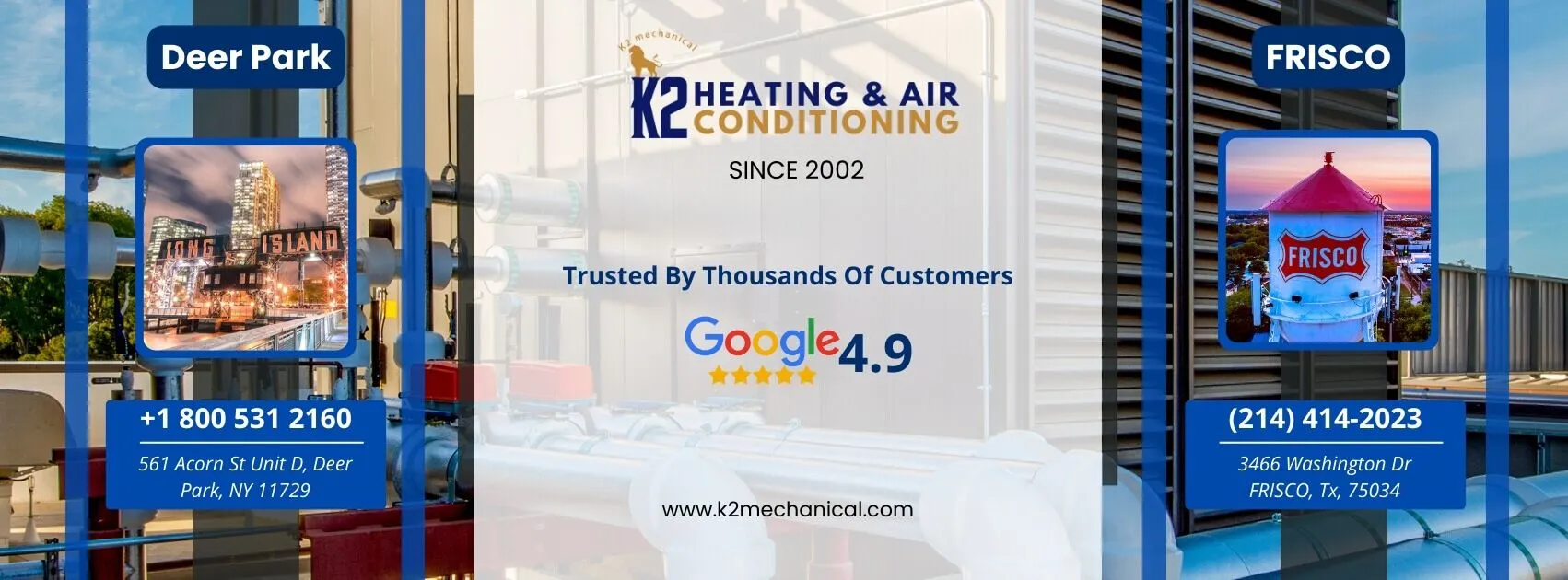Maintaining your HVAC system is critical to ensuring comfortable living or working environments, especially when the weather turns extreme. However, myths about HVAC repair services often lead to confusion, poor decisions, or unnecessary expenses. Dispelling these misconceptions can save you time, money, and frustration.
This article debunks the most common myths surrounding HVAC repair services, so you can make informed decisions to keep your system running efficiently.
Myth 1: HVAC Systems Only Need Maintenance When They Break Down
One of the most prevalent myths is that HVAC systems only require attention when they stop working. Many people assume regular maintenance is unnecessary or an added expense. However, neglecting routine inspections and tune-ups can lead to significant problems down the road.
Fact:
Routine maintenance ensures your HVAC system operates efficiently. It helps identify potential issues before they escalate into costly repairs or system failures. Regular servicing also extends the life of your unit and reduces energy consumption, saving you money in the long run.
Myth 2: Bigger HVAC Systems Are Better
Some believe that installing a larger HVAC system guarantees better performance and comfort. While it might seem logical, oversizing an HVAC system can lead to inefficiency and other problems.
Fact:
An oversized system will cycle on and off more frequently, causing uneven temperature regulation and higher energy bills. Proper sizing based on the square footage and insulation of your property is crucial for optimal performance. A professional HVAC repair service can help determine the right-sized system for your needs.
Myth 3: HVAC Filters Only Need to Be Replaced Annually
Changing air filters is often overlooked, with many homeowners believing it’s a once-a-year task. This misconception can harm your system’s efficiency and indoor air quality.
Fact:
Air filters should typically be replaced every 1-3 months, depending on usage, the number of occupants, and whether you have pets or allergies. Clean filters improve airflow, reduce strain on the system, and ensure healthier indoor air.
Myth 4: DIY Repairs Are Just as Good as Professional Services
With the abundance of online tutorials, many homeowners believe they can handle HVAC repairs on their own. While DIY approaches might seem cost-effective, they often lead to more harm than good.
Fact:
HVAC systems are complex and require specialized tools and knowledge. Attempting DIY repairs can void warranties, cause further damage, or even pose safety hazards. Hiring a certified HVAC repair service ensures proper diagnosis and repair, keeping your system safe and efficient.
Myth 5: Thermostat Adjustments Don’t Impact Energy Efficiency
Some people think that constantly adjusting their thermostat has no impact on energy efficiency. This misconception can lead to higher utility bills.
Fact:
Frequent thermostat changes force your HVAC system to work harder, increasing wear and tear. Investing in a programmable thermostat allows you to maintain consistent temperatures and reduce energy costs without overworking your system.
Myth 6: All HVAC Repair Services Are the Same
It’s common to assume that all HVAC service providers offer the same quality and expertise. Choosing the cheapest option may seem like a way to save money, but it could result in subpar repairs or further issues.
Fact:
Not all HVAC repair companies are created equal. Look for licensed, insured, and experienced professionals with positive reviews and certifications. Quality service ensures reliable repairs and long-term satisfaction.
Myth 7: Closing Vents in Unused Rooms Saves Energy
A popular misconception is that closing vents in rooms not currently in use will reduce energy consumption. While this may seem logical, it can disrupt your HVAC system’s balance and efficiency.
Fact:
Closing vents increases pressure within the ductwork, potentially causing leaks and reducing overall efficiency. Instead, consult with an HVAC professional to explore energy-saving options like zoning systems or insulation upgrades.
Myth 8: HVAC Systems Last Forever
Some homeowners believe their HVAC system will run indefinitely if they don’t notice any significant issues. This myth often results in unexpected breakdowns and costly replacements.
Fact:
The average lifespan of an HVAC system is 10-15 years, depending on maintenance and usage. Regular servicing can extend its life, but eventually, components will wear out. An experienced HVAC repair service can help assess when repairs are no longer cost-effective, and a replacement is necessary.
Myth 9: Energy-Efficient HVAC Systems Don’t Need Maintenance
Switching to an energy-efficient HVAC system is a smart move, but some believe these advanced systems don’t require regular upkeep.
Fact:
While energy-efficient systems consume less power, they still need regular maintenance to function optimally. Ignoring tune-ups can reduce efficiency and shorten the system’s lifespan. Routine servicing by a professional ensures you maximize your investment.
Myth 10: Running Your HVAC System Nonstop Causes No Harm
Another common belief is that HVAC systems are designed to run continuously without any consequences. However, this can lead to wear and tear.
Fact:
Running your HVAC system non-stop without giving it a break can strain components and reduce efficiency over time. Installing a programmable thermostat or using energy-saving settings can help reduce wear while maintaining comfort.
Conclusion
Myths about HVAC repair services can lead to unnecessary expenses, inefficient operation, and even system failures. By understanding the facts, you can make smarter decisions about maintaining and repairing your HVAC system. Regular maintenance, professional repairs, and staying informed about best practices ensure your HVAC system operates efficiently and reliably.
Embracing these truths helps you save money, improve indoor comfort, and extend the life of your system. Always rely on trusted HVAC professionals to guide you in maintaining and optimizing your investment.
